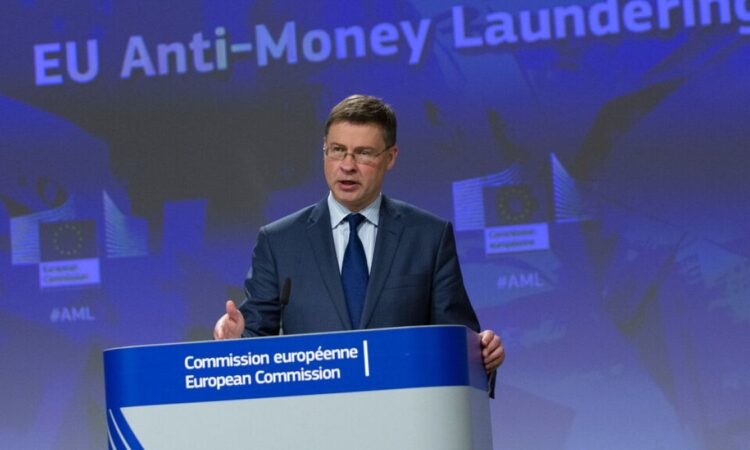
Legislators have agreed on the shape of a new money laundering agency — but not its location, nor the rulebook it will follow
Talks on a new EU anti-money laundering regulation collapsed late last night with negotiators still at odds over how to treat football and the super-rich, two sources briefed on the talks have told Euronews.
Lawmakers and governments are aligned on the outlines of a new EU authority to supervise 40-odd major banks, a deal hailed as a game-changer for the bloc, which has been keen to draw a line after a series of dirty-money scandals.
But there’s still no agreement on where to put the new agency, nor the exact rulebook it’ll enforce. Delay could mean the new regulation won’t take effect until late next year.
One area of contention concerns registers of corporate information — a frequent resource for activists and journalists attempting to trace complex financial structures, which lawmakers say need to be protected.
In a shock judgement last year, the EU’s highest court said that such data should not be public — and some worry the EU’s Council, which groups member states, is trying to water down effectiveness still more.
“The Council wants to limit the identification of beneficial owners,” Damien Carême, the MEP shepherding the bill through the European Parliament’s civil liberties committee, told Euronews in a statement, describing Council proposals as a “political choice … not dictated by any international standard or industry practice.”
Under existing plans, anyone with over 25% of a company’s shares is deemed an owner, but governments want a softer approach when long, indirect ownership chains dilute control.
EU members are also sceptical about the need to extend EU rules to high net worth individuals or soccer clubs, saying this would mean extra paperwork out of proportion to risk.
Negotiators meet on Monday (18 December) to figure out how to whittle down the shortlist of nine cities that have volunteered to host a new Anti-Money Laundering Agency.
But talks on the underpinning rulebook won’t resume until next year.
While that delay may jeopardise the ability to finalise the law before June 2024 European Parliament elections, it could unblock some of the thornier elements of the talks.
As of January 1, Council talks will be chaired by Belgium — which is one of the few EU countries that already imposed anti-money laundering rules for football, after the 2018 “Operation Zero” probe saw raids on a range of clubs.






